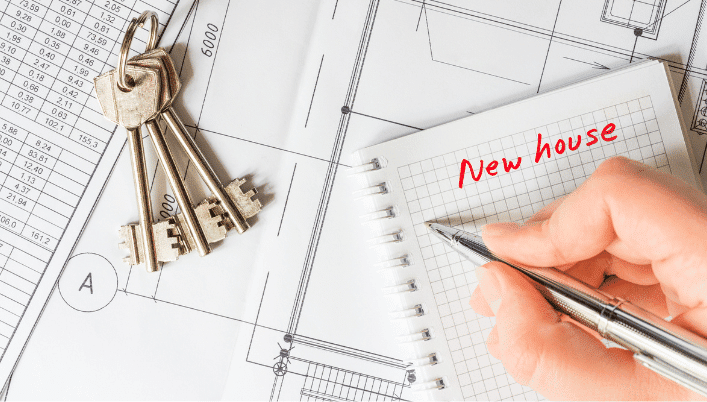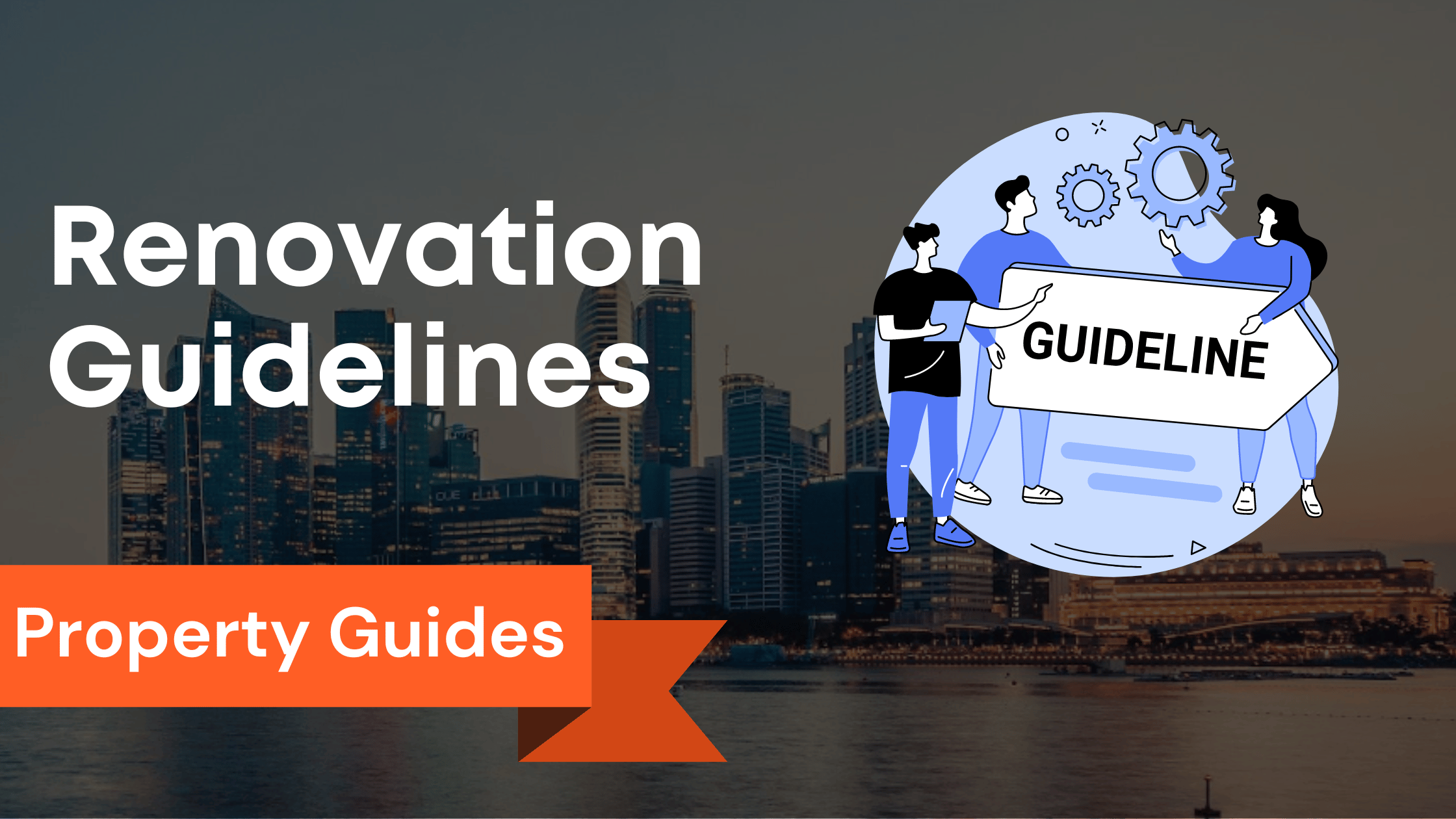
Step into the realm of Sale and Purchase Agreement (SPAs), where transactions become artful symphonies.
SPAs bind buyers and sellers in a dance of clarity, outlining rights, obligations and building trust.
These documents hold essential clauses, shaping a seamless exchange.
As explorers of due diligence, we uncover hidden facets, ensuring a secure passage.
Finally, possession arrives, marking the climax of this journey.
Through SPAs, questions find answers and a universe of knowledge unfolds.
Join us as we embark on a voyage through the captivating realm of SPAs.
Key Takeaways
- Sale and Purchase Agreement (SPA): An SPA is a legally binding document that outlines property transaction terms between a buyer and a seller, ensuring clarity and protection.
- Importance of SPAs: SPAs establish buyer and seller rights and responsibilities, preventing disputes and specifying purchase price, warranties, and property ownership transfer.
- Key Elements of an SPA: SPAs include terms, conditions, purchase price, warranties, and deposit details. They cover property inspections, contingencies, and specific requirements.
- Purchase Price Determination: The purchase price is negotiated and influenced by market conditions, property location, and condition, ensuring fairness through research and advice.
- Warranties: Sellers provide assurances in SPAs regarding property condition and ownership, protecting buyers against undisclosed defects or issues post-transaction.
- Terms and Conditions: SPA terms establish buyer and seller rights, covering purchase price, payment terms, property inspections, and contingencies.
- Seller’s Obligations: Sellers ensure property condition and provide necessary documentation. They must comply with deadlines and transfer legal title upon completion.
- Buyer’s Obligations: Buyers conduct due diligence, make payments, and understand terms. After completion, buyers take on property ownership and associated responsibilities.
- Negotiation Process: Negotiating an SPA involves open communication, prioritizing needs, seeking professional advice, and reviewing terms before signing.
- Intellectual Property in SPAs: In commercial transactions, include provisions to protect intellectual property rights, seeking specialized advice for clarity and legal compliance.
Understanding the Significance of Sale and Purchase Agreements

What is a sale and purchase agreement?
A sale and purchase agreement, also commonly referred to as a purchase agreement or SPA, is a legally binding document that outlines the terms and conditions of a property transaction between a buyer and a seller.
This agreement serves as the foundation for the entire transaction and provides both parties with clarity and protection.
Why are sale and purchase agreements important?
They outline the purchase price and include essential clauses such as warranties, terms, and conditions, and transferring property ownership.
These agreements protect the interests of both parties and help prevent potential disputes or legal complications.
What are the critical elements of a sale and purchase agreement?
A sale and purchase agreement typically includes several key elements.
First, it outlines the terms and conditions the buyer and the seller must adhere to throughout the transaction.
These may include provisions related to property inspections, contingencies, and any specific requirements from either party.
The purchase price is another crucial element of the agreement.
It specifies the amount the buyer agrees to pay for the property and any additional costs or taxes.
The contract may also include clauses relating to the payment of a deposit, which is typically a percentage of the purchase price the buyer provides upfront as a sign of commitment.
The warranties included in a sale and purchase agreement provide assurances from the seller regarding the condition and ownership of the property.
These warranties protect the buyer in case any defects or issues arise after the completion of the transaction.
The Key Components of a Legally Binding Sale and Purchase Agreement

What are the terms and conditions of a sale and purchase agreement?
The terms and conditions in a sale and purchase agreement establish the rights and obligations of the buyer and the seller.
They cover various aspects of the transaction, including but not limited to the agreed purchase price, payment terms, property inspection requirements, and any contingencies that need to be met.
How is the purchase price determined in a sale and purchase agreement?
The purchase price in a sale and purchase agreement is usually determined through negotiations between the buyer and the seller.
Factors such as market conditions, property location, and the property’s condition can influence the agreed-upon price.
Both parties must conduct research and seek professional advice to ensure the purchase price is fair and reasonable.
What are the warranties included in a sale and purchase agreement?
Warranties in a sale and purchase agreement are assurances the seller provides regarding the property’s condition and ownership.
These warranties protect the buyer against undisclosed defects or issues that may arise after the completion of the transaction.
Standard warranties may include ensuring that the seller has clear title to the property, that there are no outstanding debts or liens on the property, and that all necessary permits and approvals have been obtained.
Exploring the Role of Purchase Agreements in Real Estate Deals

How does a purchase agreement facilitate a real estate transaction?
A purchase agreement acts as a legally binding contract that facilitates the transfer of property ownership from the seller to the buyer.
It provides a clear framework for the transaction and ensures that both parties know their rights and responsibilities.
The agreement also helps to streamline the process of transferring property ownership and reduces the risk of disputes or misunderstandings.
What types of properties can be bought and sold through a purchase agreement?
A purchase agreement can be used for various properties, including residential homes, commercial buildings, vacant land, and intellectual property rights.
The specific terms and conditions of the agreement may vary depending on the type of property being bought or sold.
Still, the fundamental purpose of the deal remains the same – to establish a legally binding contract between the buyer and the seller.
What is the process of transferring property ownership through a sale and purchase agreement?
The process of transferring property ownership through a sale and purchase agreement typically involves several steps.
First, both parties negotiate and agree to the terms of the sale, including the purchase price and any additional conditions.
Once the words are finalized, the buyer usually pays a deposit to secure the property and demonstrate their commitment to the transaction.
The buyer then conducts due diligence, including property inspections, title searches, and other necessary investigations.
Once the due diligence is completed satisfactorily, the buyer and the seller proceed with the completion of the transaction.
This involves the transfer of payment from the buyer to the seller and the transfer of legal title and any other relevant documents.
It is important to note that the specific process may vary depending on the jurisdiction and applicable laws.
Buyer and Seller Dynamics: Navigating the Purchase Agreement

What are the rights and responsibilities of the buyer in a purchase agreement?
In a purchase agreement, the buyer has several rights and responsibilities.
The buyer has the right to conduct inspections and due diligence to ensure that the property meets their requirements.
They are responsible for reviewing and understanding the terms and conditions of the agreement, including any contingencies or deadlines.
The buyer is also responsible for providing the agreed-upon deposit and making payment per the contract terms.
Additionally, once the transaction is completed, the buyer becomes the rightful owner of the property and assumes all associated responsibilities, such as property taxes and maintenance fees.
What are the rights and responsibilities of the seller in a purchase agreement?
On the other hand, the seller also has rights and responsibilities in a purchase agreement.
The seller has the right to be presented with a fair and reasonable offer and to negotiate the terms of the contract.
They are responsible for ensuring that the property is in a condition as agreed upon and for providing any necessary documents or disclosures.
The seller must also comply with any deadlines or contingencies outlined in the agreement.
Once the transaction is completed, the seller is typically responsible for transferring the legal title and any other relevant documents to the buyer.
How can a buyer and seller negotiate the terms of a purchase agreement?
Negotiating the terms of a purchase agreement involves open and honest communication between the buyer and the seller.
Both parties should clearly express their needs and expectations to ensure a mutually beneficial arrangement.
It is common for negotiations to involve discussions on the purchase price, contingencies, repairs or renovations, and any specific conditions or requirements that either party may have.
It is essential for both the buyer and the seller to consider various factors, such as market conditions and the condition of the property, when negotiating the terms of the agreement.
Unveiling the Inner Workings of a Sale and Purchase Agreement (SPA)

What is the difference between a sale and purchase agreement and a sale agreement?
While both a sale and purchase agreement (SPA) and a sale agreement serve similar purposes, there is a subtle difference between the two.
A sale agreement typically refers to an agreement to sell a property, which outlines the terms and conditions under which the seller agrees to sell the property to the buyer.
On the other hand, a sale and purchase agreement encompasses the entire transaction, including both the sale and purchase aspects, and includes all relevant terms and conditions.
What is the role of a legal advisor in drafting and reviewing a sale and purchase agreement?
Engaging a legal advisor is crucial when drafting and reviewing a sale and purchase agreement.
A legal advisor can ensure that the agreement accurately reflects the intentions of both parties and complies with applicable laws and regulations.
They can guide in negotiating the terms, resolving any discrepancies, and ensuring that the agreement protects the interests of their clients.
A legal advisor can also help identify potential pitfalls or issues that may arise during the transaction and advise on mitigating these risks.
How do you manage contract disputes arising from a sale and purchase agreement?
In the unfortunate event of a contract dispute arising from a sale and purchase agreement, it is essential to have a transparent dispute resolution process in place.
This process may involve several steps, such as attempting to negotiate a resolution, engaging in mediation or arbitration, or initiating legal proceedings as a last resort.
It is advisable to seek legal advice from a qualified professional specializing in contract law to protect your rights and interests.
Legal Framework and Requirements of Sale and Purchase Agreements

Understanding the legal framework surrounding sale and purchase agreements
A sale and purchase agreement is a legally binding contract between a buyer and a seller.
It outlines the terms and conditions of the transaction, ensuring that both parties understand their rights and obligations.
Contract law governs the formation of SPAs, providing a framework for creating a legally enforceable agreement.
Key requirements for a valid sale and purchase agreement
Specific requirements must be met for a sale and purchase agreement to be valid.
These include:
- An offer and acceptance: The buyer makes an offer to purchase the property, and the seller accepts the offer.
- Consideration: The buyer provides something of value, typically in the form of a sales price, in exchange for the property.
- Legal capacity: Both the buyer and the seller must have the legal ability to enter into a contract.
- Intention to create a legal relationship: The parties must intend for the agreement to be legally binding.
The role of commercial contracts in SPAs
Commercial contracts play a vital role in SPAs, as they outline the specific terms and conditions of the transaction.
These contracts cover various aspects, such as payment schedules, financing conditions, and disclosure requirements.
The parties can ensure clarity and minimize potential disputes by including these commercial contracts within the SPA.
Buyer-Seller Relationship: Legal Ownership and Obligations
Determining legal ownership in a sale and purchase agreement
A sale and purchase agreement establishes the legal ownership of the property.
Once the deal is signed, the buyer obtains legal possession of the property upon fulfilling certain conditions, such as the payment of the agreed sales price.
Buyer’s obligations in a sale and purchase agreement
The buyer in a sale and purchase agreement has certain obligations to fulfill.
These may include making timely payments, obtaining necessary financing, and conducting due diligence on the property.
It is essential for the buyer to carefully review and understand these obligations before agreeing.
Seller’s obligations in a sale and purchase agreement
On the other hand, the seller in a sale and purchase agreement also has obligations.
These may include ensuring that the property is free from encumbrances or defects, providing necessary documentation, and transferring legal ownership to the buyer upon transaction completion.
Deciphering the Complexity of Intellectual Property Rights in SPAs
Understanding intellectual property rights in sale and purchase agreements
Intellectual property rights can be a complex sale and purchase agreement component, especially in commercial property transactions.
These rights may include patents, copyrights, trademarks, and trade secrets.
It is essential to understand the scope of these rights and include specific provisions in the SPA to protect them.
The importance of involving property lawyers in dealing with intellectual property rights
Given the intricate nature of intellectual property rights, involving property lawyers who specialize in this area is highly recommended.
These lawyers can provide expert advice and guidance, ensuring the buyer’s interests are protected, and all necessary legal requirements are met.
Protecting intellectual property rights in commercial property transactions
To protect intellectual property rights in commercial property transactions, including specific provisions in the SPA is crucial.
These provisions may address issues such as the transfer of intellectual property ownership, restrictions on its use, and the protection of confidential information.
Ensuring Clarity: Exploring Essential Clauses and Terms in SPAs
Examining essential clauses in a sale and purchase agreement
A sale and purchase agreement should include several essential clauses to clarify and avoid potential disputes.
These clauses may cover aspects such as the transaction particulars, purchase price, payment conditions, financing arrangements, and conditions for termination or renegotiation of the agreement.
Key terms to include in a sale and purchase agreement
Several key terms should be included in a sale and purchase agreement.
These terms may encompass the rights and obligations of the parties, details of the property being sold, timelines for completion, dispute resolution mechanisms, and any special conditions or contingencies.
Disclosure requirements in a sale and purchase agreement
To ensure transparency and protect the interests of both parties, a sale and purchase agreement should outline specific disclosure requirements.
These requirements may include disclosing any known defects, encumbrances, or legal issues related to the property.
Navigating the Negotiation Process: Tips for Crafting a Strong Agreement
Tips for negotiating favorable terms and conditions in a sale and purchase agreement
Negotiating a sale and purchase agreement can be a complex process.
To craft a substantial deal, it is essential to consider the following tips:
- Thoroughly understand the market conditions and property value.
- Identify your priorities and negotiate accordingly.
- Engage in open and transparent communication with the other party.
- Seek professional advice from property lawyers or real estate agents.
- Review and understand all terms and conditions before signing the agreement.
Exploring financing conditions in a sale and purchase agreement
Financing conditions are essential to a sale and purchase agreement, mainly when the buyer relies on external funding sources such as bank loans.
These conditions may outline the specific requirements and timelines for obtaining financing, ensuring that the transaction is feasible for the buyer.
Important considerations during the diligence period of a sale and purchase agreement
The diligence period is a crucial stage in a sale and purchase agreement, during which the buyer conducts thorough inspections and investigations of the property.
It is essential for the buyer to carefully review building specifications, obtain necessary approvals, and assess any potential risks or issues before proceeding with the transaction.
Beyond the Basics: Special Considerations and Contingencies in SPAs
Understanding the Additional Deposits
Sometimes, the buyer may be required to make additional deposits during the transaction.
These deposits serve as a form of security and reassure the seller that the buyer is committed to the purchase.
It is essential for both parties to clearly understand the terms and conditions regarding these additional deposits to avoid any disputes or confusion later on.
Exploring the Escrow Deposit
One of the expected additional deposits is the escrow deposit.
This is a sum of money held by a third-party escrow agent until certain conditions are met.
The escrow deposit acts as a neutral intermediary, ensuring that both parties fulfill their obligations and protecting the interests of the buyer and seller.
Conveyancing Process and Title Search
The conveyancing process involves the transfer of legal ownership from the seller to the buyer.
It includes conducting a title search to verify its authenticity, checking for any encumbrances or liens on the property, and ensuring all necessary documents are in order.
This process is essential to protect the buyer’s interests and provide peace of mind.
Due Diligence and Compliance: Fulfilling Conditions Precedent in SPAs
Seeking Expert Advice for Due Diligence
Due diligence is a vital part of the SPA process.
It involves thoroughly investigating the property to identify any potential risks or issues that may affect the purchase.
The buyer should seek expert advice, such as hiring a professional surveyor or property lawyer, to ensure they comprehensively understand the property and its associated risks.
Meeting the Deadline for Delivery
The SPA sets a deadline for the delivery of the property to the buyer.
Both parties must adhere to this deadline to avoid unnecessary delays or complications.
The buyer should ensure they have made the necessary arrangements to take possession of the property on the agreed-upon date.
Access Keys and Possession Terms
The SPA should clearly outline the terms and conditions of possession, including when the buyer will receive the keys to the property.
The buyer needs to confirm that they will have access to the property on the closing date and that no restrictions or limitations may hinder their ability to take possession.
Proactive Measures: Breach of Contract Claims and Remedies in SPAs
Understanding the Breach of Contract
In some cases, one party may fail to fulfill its obligations as outlined in the SPA, resulting in a breach of contract.
It is crucial for both the buyer and the seller to understand their rights and responsibilities in the event of a violation, as well as the potential consequences and remedies that may be available to them.
Exploring Property Tax and Ownership
Property tax is an essential consideration in any real estate transaction.
The SPA should clearly outline the responsibility for paying property tax, including any arrears or outstanding amounts.
The buyer must understand their liability and ensure that all necessary payments are made to avoid potential legal issues.
Warranty Period and Legal Advice
The SPA may include warranties from the seller regarding the property’s condition.
The buyer must seek legal advice to ensure these warranties are appropriate and provide adequate protection.
Additionally, the SPA should specify the duration of the warranty period and any remedies available to the buyer in the event of a breach of warranty.
Closing the Deal: Exploring the Payment Schedule and Possession Terms
Understanding the Negotiation Process
The negotiation process is a crucial stage in the SPA, where both parties discuss and agree upon the terms and conditions of the sale.
The buyer must know their rights and negotiate favorable terms, such as the purchase price, payment schedule, and possession terms.
Managing Maintenance Fees and Contracts
Once the SPA is signed and the property is transferred, the buyer becomes responsible for various expenses, including maintenance fees.
The buyer needs to review any existing contracts or agreements related to the property, such as maintenance contracts or service agreements, to understand their obligations and ensure the smooth management of the property.
Ensuring a Binding Contract and Dispute Management
The SPA should clearly outline the terms and conditions both parties have agreed upon and create a legally binding contract.
In the event of any disputes or disagreements, the SPA should also include provisions for dispute resolution, such as mediation or arbitration, to ensure a fair and timely resolution.
Reader Interactions: Addressing Common Questions About SPAs
Exploring Different Property Types
SPAs can be used for various types of properties, including residential, commercial, or industrial properties.
The terms and conditions of the SPA may vary depending on the property type, and the buyer needs to understand the specific considerations and requirements associated with their chosen property type.
Understanding the Sale Agreement and Purchase Price
The sale agreement is a critical component of the SPA and outlines the terms and conditions of the sale, including the purchase price.
It is essential for the buyer to thoroughly review and understand the sale agreement, including any provisions related to price adjustments or payment terms, to ensure that they are making an informed decision.
Addressing Contract Disputes and Legal Considerations
Contract disputes can sometimes arise during the SPA process.
It is essential for both parties to be aware of their legal rights and obligations and to seek legal advice if necessary.
Understanding the legal considerations and potential risks associated with SPAs can help prevent disputes and ensure a smooth transaction.
Conclusion
In the intricate world of real estate transactions, the Sale and Purchase Agreement (SPA) stands as a paramount document, forging the path toward property ownership.
This legally binding contract encapsulates the essence of the buyer-seller relationship, ensuring both parties are harmoniously aligned in their responsibilities and commitments.
The SPA, often referred to as the cornerstone of the transaction, orchestrates a symphony of terms and conditions, orchestrating the transfer of ownership.
It’s not merely a formality; it’s a safeguard against uncertainties and disputes.
The SPA delineates the minutiae of the property sale, from the purchase price intricacies to the deposit nuances.
But what elevates the SPA beyond legal formalities is the interplay of negotiations.
Buyer and seller collaborate, seeking common ground while accounting for their unique priorities.
This negotiation dance manifests in the financing conditions that bind the transaction to the realm of reality, bridging aspirations with fiscal feasibility.
Frequently Asked Questions
What is a sale and purchase agreement?
What are the key components of a sale and purchase agreement?
You should apply for the license through the HDB website.
What is an option to purchase?
However, if you choose to renovate without a contractor, you must ensure that the results comply with HDB’s guidelines.
What is a cooling-off period?
What is a cash-out clause?
What is a defect liability period?
What is a stamp duty?
The amount of stamp duty payable depends on the value of the transaction.
What are the eligibility requirements for entering into a sale and purchase agreement?
It is recommended to consult with a legal professional for specific eligibility requirements.
What is the role of a sale and purchase agreement in property transactions?
What is the significance of a sale and purchase agreement in Singapore?
It is commonly used in real estate transactions and is required to purchase or sell property.












